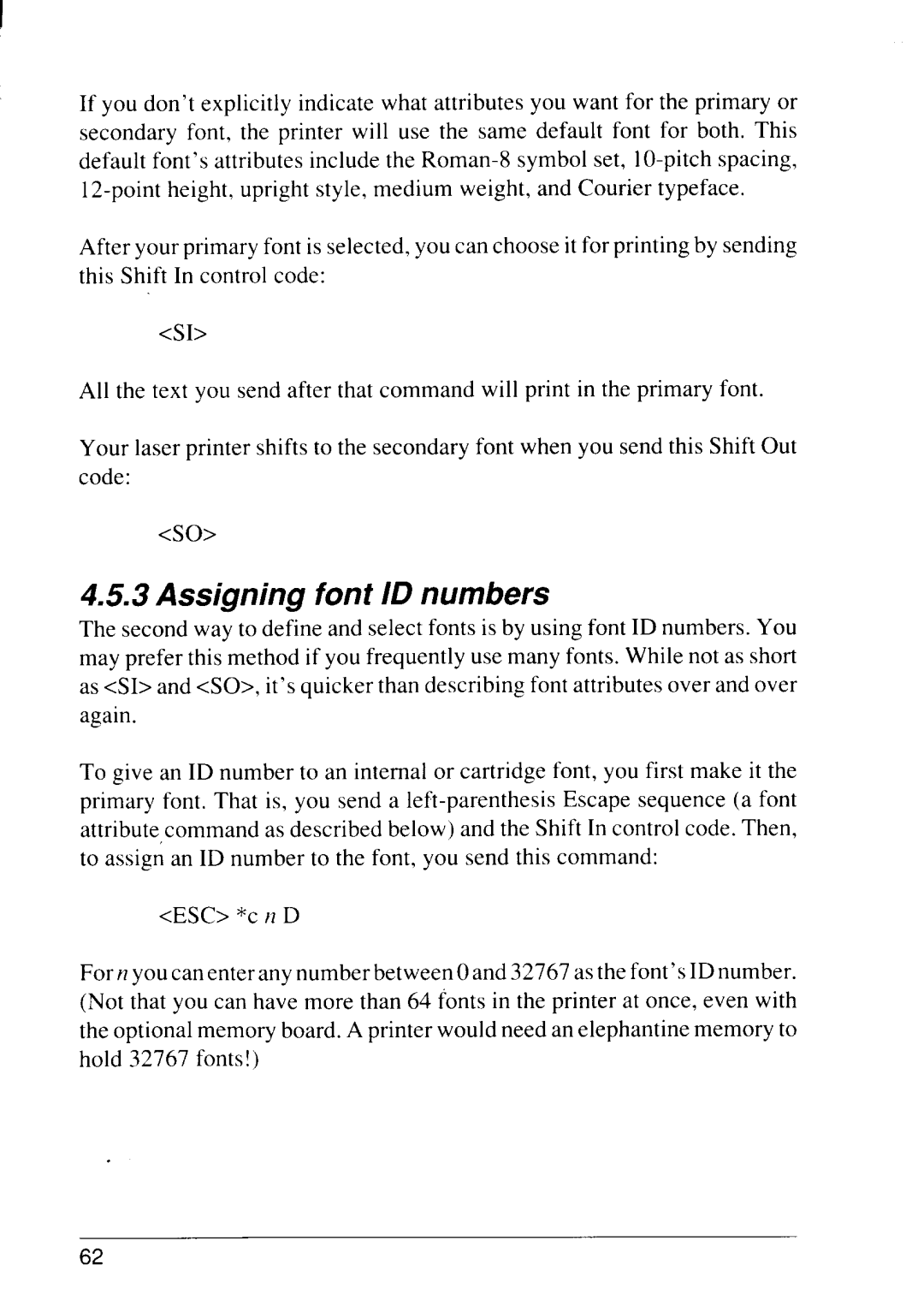
!
If you don’t explicitly indicate what attributes you want for the primary or secondary font, the printer will use the same default font for both. This default font’s attributes include the
After your primary font is selected, you can choose it for printing by sending this Shift In control code:
<S1>
All the text you send after that command will print in the primary font.
Your laser printer shifts to the secondary font when you send this Shift Out code:
<so>
4.5.3 Assigning font ID numbers
The second way to define and select fonts is by using font ID numbers. You may prefer this method if you frequently use many fonts. While not as short as <S1>and <SO>, it’s quicker than describing font attributes over and over again.
To give an ID number to an internal or cartridge font, you first make it the primary font. That is, you send a
<ESC> *C H D
For n you can enter any number between Oand 32767 as the font ID number. (Not that you can have more than 64 fonts in the printer at once, even with the optional memory board. A printer would need an elephantine memory to hold 32767 fonts!)
62
